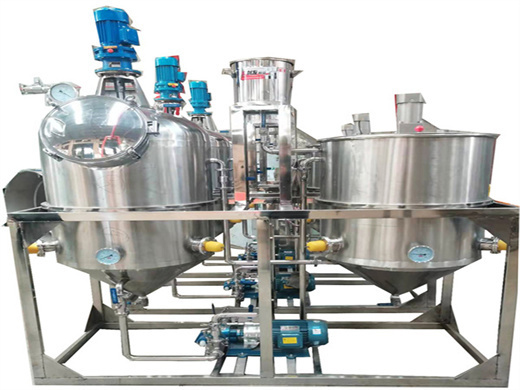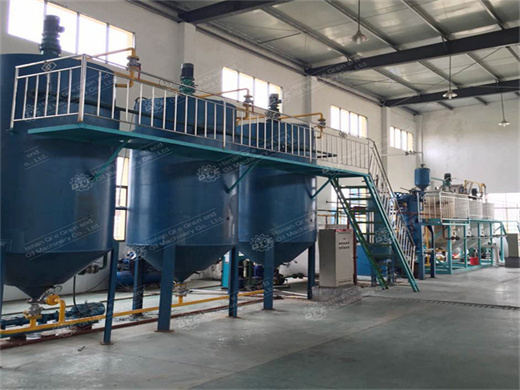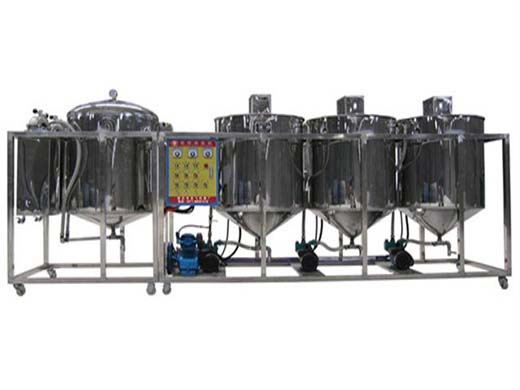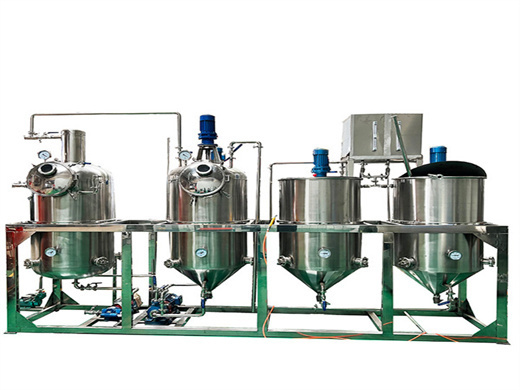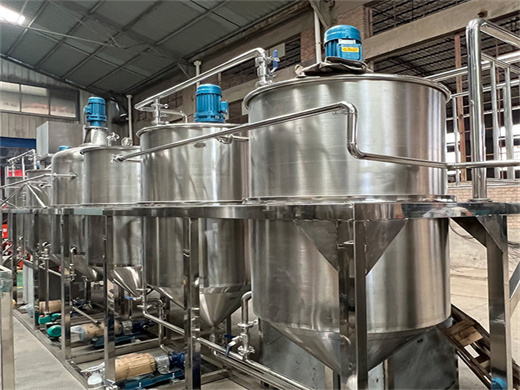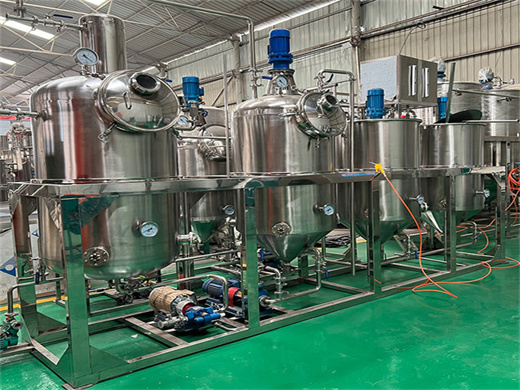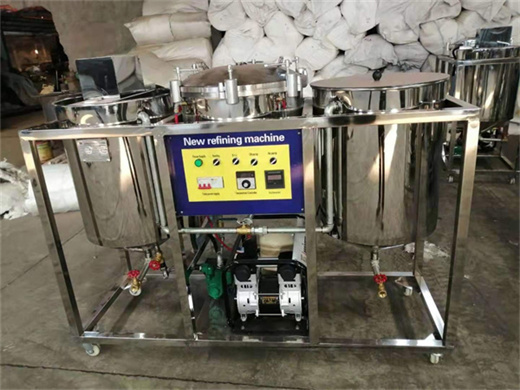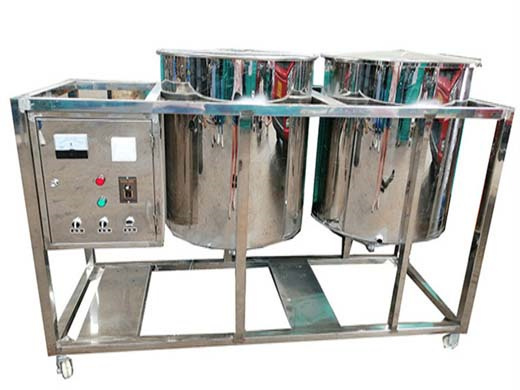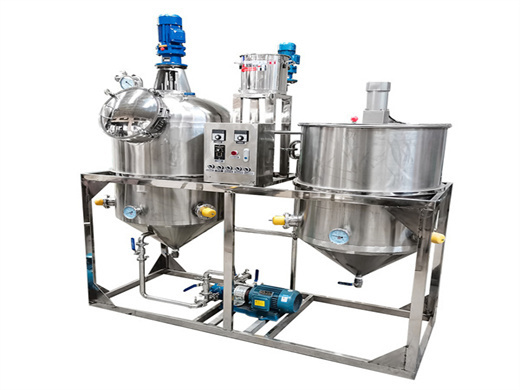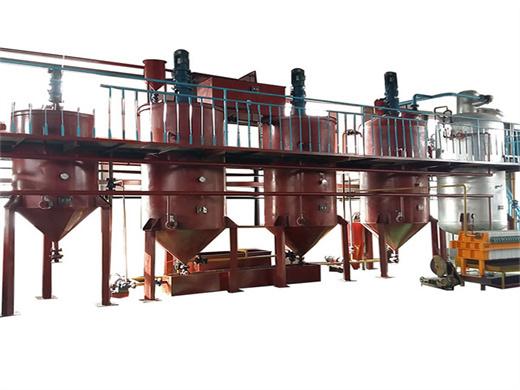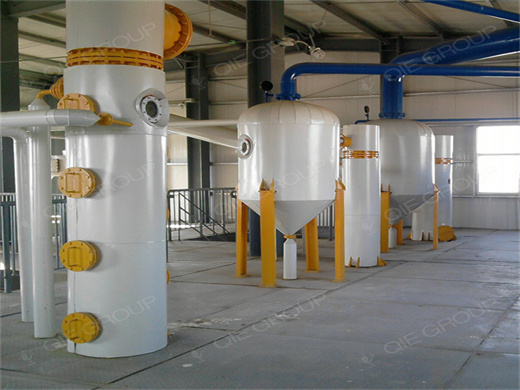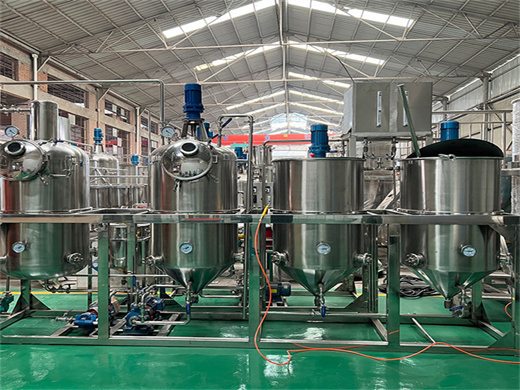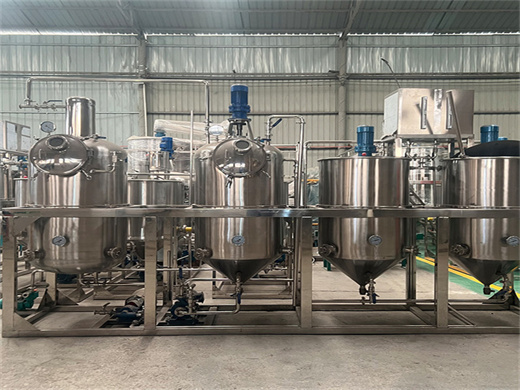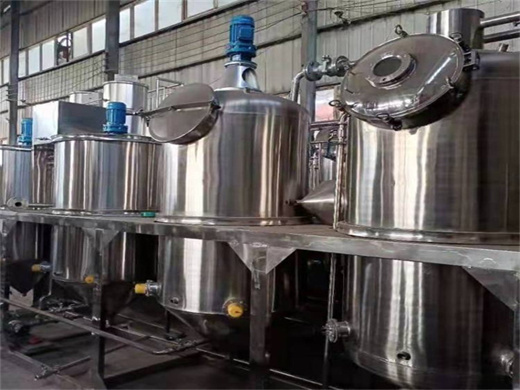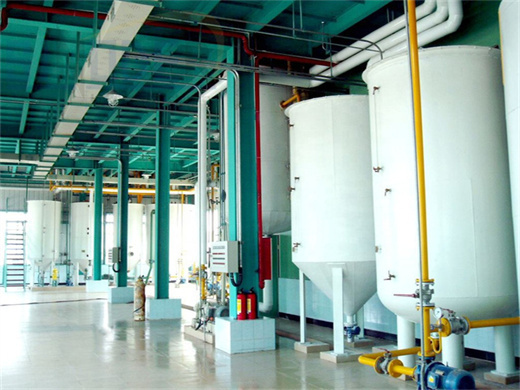Continuous Distillation Process in Crude Oil Refining
Continuous distillation is a process in which a chemical mixture is continuously fed into a distillation column where its contents are separated through selective boiling. It is used extensively in crude oil refining to produce petroleum products, such as gasoline, lubricants, fuel oil, waxes, and petrochemicals.
The Atyrau Refinery modernisation project is being implemented in three phases by KazMunaiGas and is set for completion in 2015. On completion, the project will enable the refinery to increase crude oil refining capacity to five million tonnes a year and achieve an output that conforms to Euro-5 standards.
Operation and Control of Crude Oil Refining Process using
to automate the operation & control of crude oil distillation process and subsiding human intervention, there is a need for developing PLC based control system.
Kazakhstan advances refinery modernization program ... was designed to process a West-Siberian blend of crude oil, the modernization overall, once completed, will equip the complex to process as ...
Refining crude oil - the refining process - U.S. Energy
Refining breaks crude oil down into its various components, which are then selectively reconfigured into new products. ... Inside the distillation units, ... The process, which essentially is cracking in reverse, takes place in a series of large, horizontal vessels and tall, skinny towers.
The oil refining process starts with a fractional distillation column. The various components of crude oil have different siz es, weights and boiling temperatures; so, the f irst step is to separate
Crude Oil Distillation - an overview | ScienceDirect Topics
Crude oil distillation is a large energy consumer and a large waste generator, so refiners need to balance the economics of processing crude oil to viable fractions. From: Ludwig's Applied Process Design for Chemical and Petrochemical Plants (Fourth Edition), Volume 2, 2010. Q.L. Chen, in Computer Aided Chemical Engineering, 2024.
Crude oil refineries employ some of the United States’ top scientists, engineers, and safety professionals to ensure that products are produced efficiently and safely. US refineries process about 17 million barrels of crude oil a day. Refinery configurations vary, but US refineries are undeniably some of the world’s most sophisticated ...
Crude-oil distillation in a refinery
The crude oil has been on a long journey before it lands in the refinery, where all the products we need every day are produced. The crude oil has to be pumped from tanks into a furnace for the
The Atyrau Refinery modernisation project is being implemented in three phases by KazMunaiGas and is set for completion in 2015. On completion, the project will enable the refinery to increase crude oil refining capacity to five million tonnes a year and achieve an output that conforms to Euro-5 standards.
Petroleum refining processes
Petroleum refining processes are the chemical engineering processes and other facilities used in petroleum refineries (also referred to as oil refineries) to transform crude oil into useful products such as liquefied petroleum gas (LPG), gasoline or petrol, kerosene, jet fuel, diesel oil and fuel oils.
The process of crude oil refining EME 801: Energy
The first process is known as distillation. In this process, crude oil is heated and fed into a distillation column. A schematic of the distillation column is shown in Figure 2.2. As the temperature of the crude oil in the distillation column rises, the crude oil separates itself into different components, called “fractions.” The fractions
Product Overview PILODIST process distillation systems
Product overview PILODIST®, a leading world-wide supplier for units and systems for thermal separation for research, development and quality control
Pumps for Crude Oil Distillation LEWA
Pumps and metering systems for distilling crude oil in refineries LEWA pumps and systems help you to optimize the performance of your distillation plant for refining crude oil and guarantee its availability.
Crude Oil Distillation an overview ScienceDirect Topics
The process simulation system PRO/II is used to build a rigorous model for the crude oil distillation unit based on the conventional two-furnace and three-column process flow in refinery that addresses both the distillation columns and the heat exchanger network (HEN) simultaneously.
Catalytic reforming
Catalytic reforming is a chemical process used to convert petroleum refinery naphthas distilled from crude oil (typically having low octane ratings) into high-octane liquid products called reformates, which are premium blending stocks for high-octane gasoline.
Atyrau Refinery Modernisation Oil&Gas Advancement
The refinery processes heavy crude oil with a high paraffin content, from oil deposits in the western regions of Kazakhstan. The refinery was developed by Badger and Sons and had an initial processing capacity of around 800,000t per year. It is located close to the richest oil fields in the country, such as Tengiz and Zhanazhol.
Petroleum refining Polymerization and alkylation
Petroleum refining Petroleum refining Polymerization and alkylation: The light gaseous hydrocarbons produced by catalytic cracking are highly unsaturated and are usually converted into high-octane gasoline components in polymerization or alkylation processes. In polymerization, the light olefins propylene and butylene are induced to combine, or polymerize, into molecules of two or three
Thaioil Group
Thaioil refinery has been designed to create maximum value from the production system. As a complex refinery, the refining process involves various steps that take place in the crude distillation units, the upgrading units, and the quality improvement units, that make Thaioil becomes one of Asia-Pacific’s leading producers of high quality
Distillation an overview ScienceDirect Topics
In ideal mixtures, equilibrium conditions obey the Raoult’s Law. The water–ethanol system is not an ideal mixture, and forms an azeotrope. Three kinds of distillation processes, namely batch, continuous flash, and fractional distillation, are described and illustrated with examples. Steam distillation, which is one of the principal methods
Continuous distillation encyclopedia article Citizendium
Although crude oils generally do not contain olefins, they are formed in many of the processes used in a petroleum refinery. The continuous distillation of petroleum crude oil (commonly referred to as crude oil fractionation) is the first processing unit in virtually all petroleum refineries worldwide. It is a somewhat unique example of
Crude Oil Refining Plant Process
For the largest Modular Refineries some components (such as crude distillation columns) are too large to mount on skids and must be shipped separately. Before shipping and while still in our shops, we fit together all of these components directly to the modularized process systems so field assembly is short and efficient. Let PPE work with you
Level Measurement Solutions For Distillation Columns
Following dewatering and desalination, crude oil enters distillation columns where fractional distillation separates hydrocarbons into different streams, cuts or fractions. Magnetrol® has produced an applications brochure for the petroleum refining industry detailing measurement challenges and solutions for each step of the refining process
Oil and gas refinery SlideShare
An oil refinery is an industrial process plant where crude oil is processed and refined into more useful products such as petroleum naphtha, gasoline, diesel fuel, asphalt base, heating oil, kerosene, and liquefied petroleum gas. they are also typically large, sprawling industrial complexes with extensive piping running throughout, carrying streams of fluids between large chemical processing
Crude Oil Refining Process Flow EnggCyclopedia
Crude Oil Storage. Generally crude oil is extracted from the geological sources then stored in the crude form until it is shipped to a refining facility where it is converted to usable end-products. Once in the refinery, the crude oil has to be stored until processing capacity is
Coking FSC 432: Petroleum Refining
Despite the development of catalytic cracking processes, coking processes have survived as a popular refining process all over the world to refine the heavy end of crudes or heavy oils through carbon rejection as coke. Coking is the most severe thermal process used in the refinery to treat the very bottom-of-the-barrel of crude oil, i.e
Coking FSC 432: Petroleum Refining
Despite the development of catalytic cracking processes, coking processes have survived as a popular refining process all over the world to refine the heavy end of crudes or heavy oils through carbon rejection as coke. Coking is the most severe thermal process used in the refinery to treat the very bottom-of-the-barrel of crude oil, i.e
Petropedia What is Distillation? Definition
Distillation process is used in various commercial industries for different kinds of applications. In petrochemical industry, distillation is an essential process that helps in refining and obtaining usable products from the crude oil. Therefore, oil refinery plants usually have a crude oil distillation unit.
APC solutions in the crude and vacuum distillation
The refinery processes light and heavy crude oil in blocked out operations. The run time for each type of crude depends upon availability of crude oil from different sources. Grupa LOTOS engaged Honeywell to implement advanced process control (APC) solutions in the crude and vacuum distillation complex to maximise the crude processing capacity constraints to hardware limitations like furnace
Desalting of crude oil in refinery EnggCyclopedia
The purpose of crude oil desalting is to remove these undesirable impurities, especially salts and water, from the crude oil prior to distillation. The salt content in the crude oil varies depending on source of the crude oil. When a mixture from many crude oil sources is processed in refinery
China Crude Refinery Oil, Crude Refinery Oil
China Crude Refinery Oil manufacturers Select 2024 high quality Crude Refinery Oil products in best price from certified Chinese Oil Machine manufacturers, Oil Press suppliers, wholesalers and factory on Made-in-China
Global Optimization for Scheduling Refinery Crude Oil
Global Optimization for Scheduling Refinery Crude Oil Operations Ramkumar Karuppiaha, Kevin C. Furmanb and Ignacio E. Grossmanna* a Department of Chemical Engineering, Carnegie Mellon University, Pittsburgh, PA 15213, U.S.A. b ExxonMobil Research and Engineering, Annandale, NJ 08801, U.S.A. April 2007 ABSTRACT In this work we present an Outer-Approximation algorithm to obtain the
Fractional Distillation How Oil Refining Works
Rather than continually distilling large quantities of crude oil, oil companies chemically process some other fractions from the distillation column to make gasoline; this processing increases the yield of gasoline from each barrel of crude oil. In the next section, we’ll look at how we chemically process one fraction into another.
Distillation process of Crude oil ResearchGate
Crude oil is a fossil fuel, it was made naturally from decaying plants and animals living in ancient seas millions of years ago -most places you can find crude oil were once sea beds.
Distillation CIRCON Environmental
Our distillation process can handle up to 1,000 barrels of feedstock per day, quickly separating valuable components. Repurpose Those distilled products become integral aspects of CIRCON’s fuel blend or gasoline, both of which are sold on the open market.
